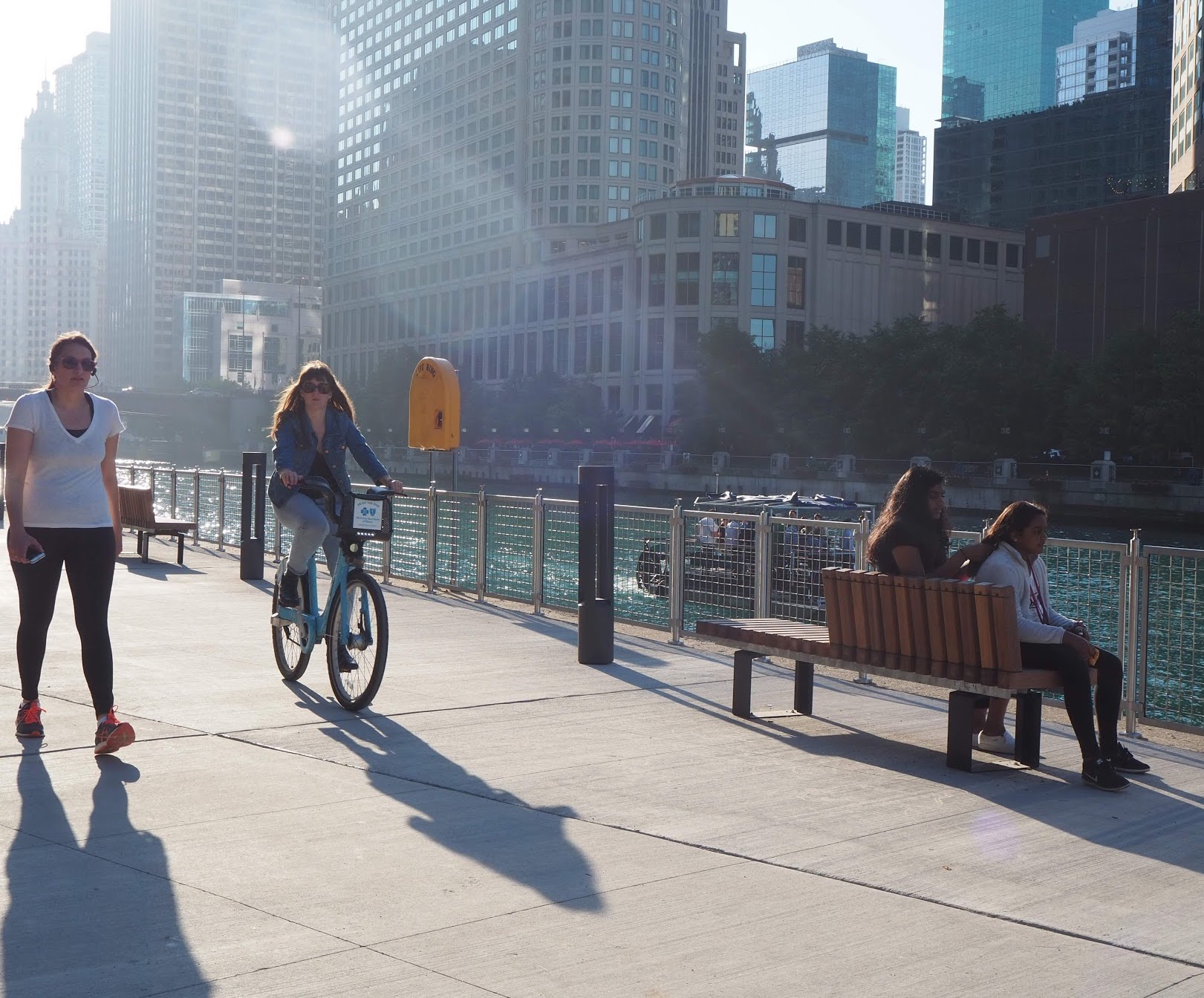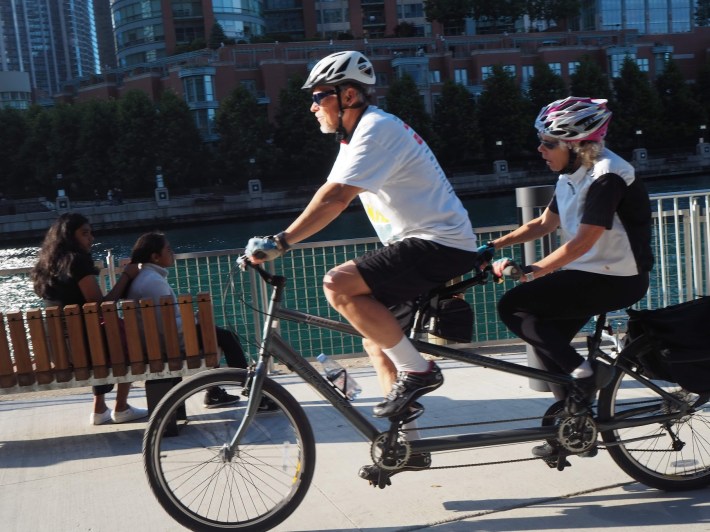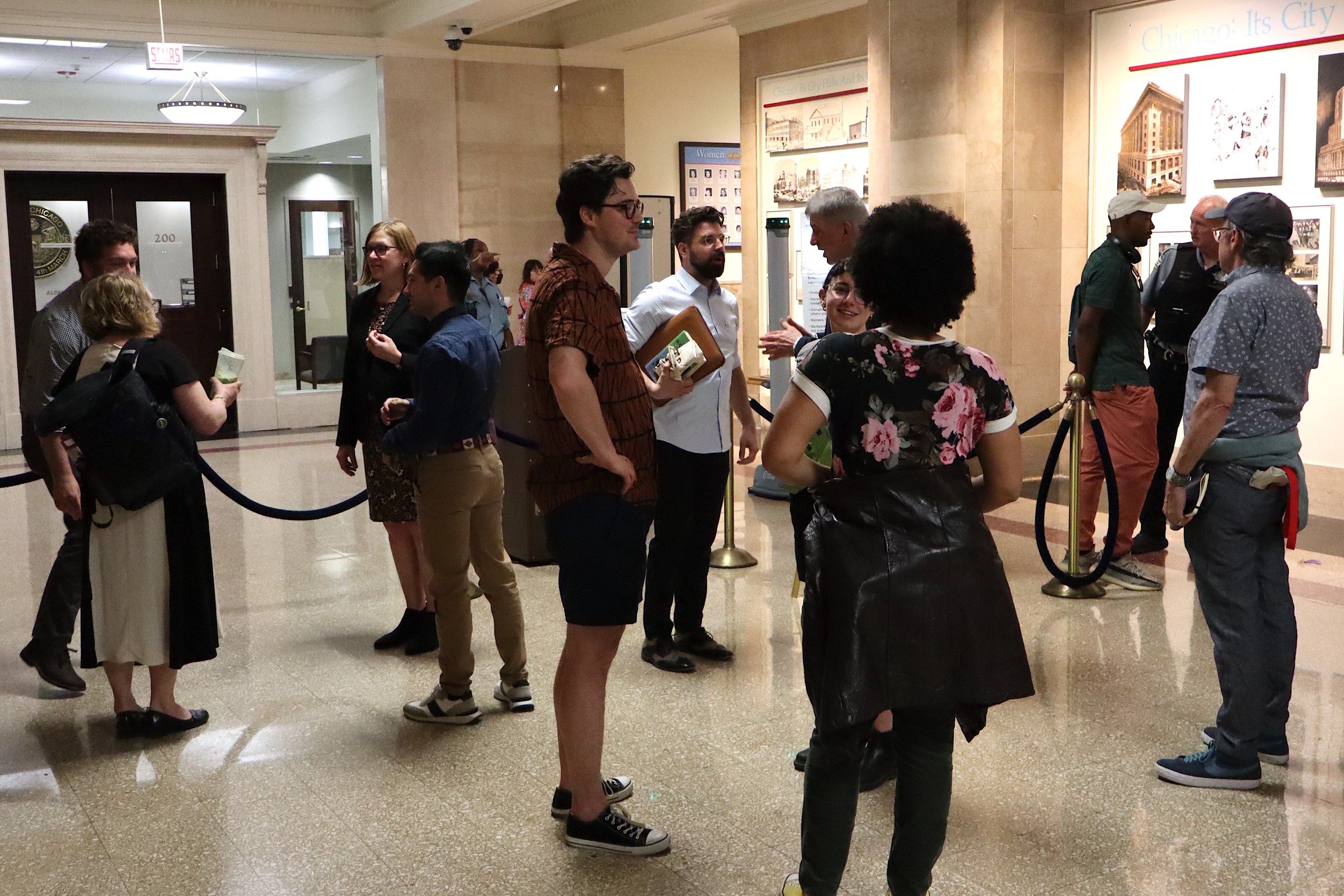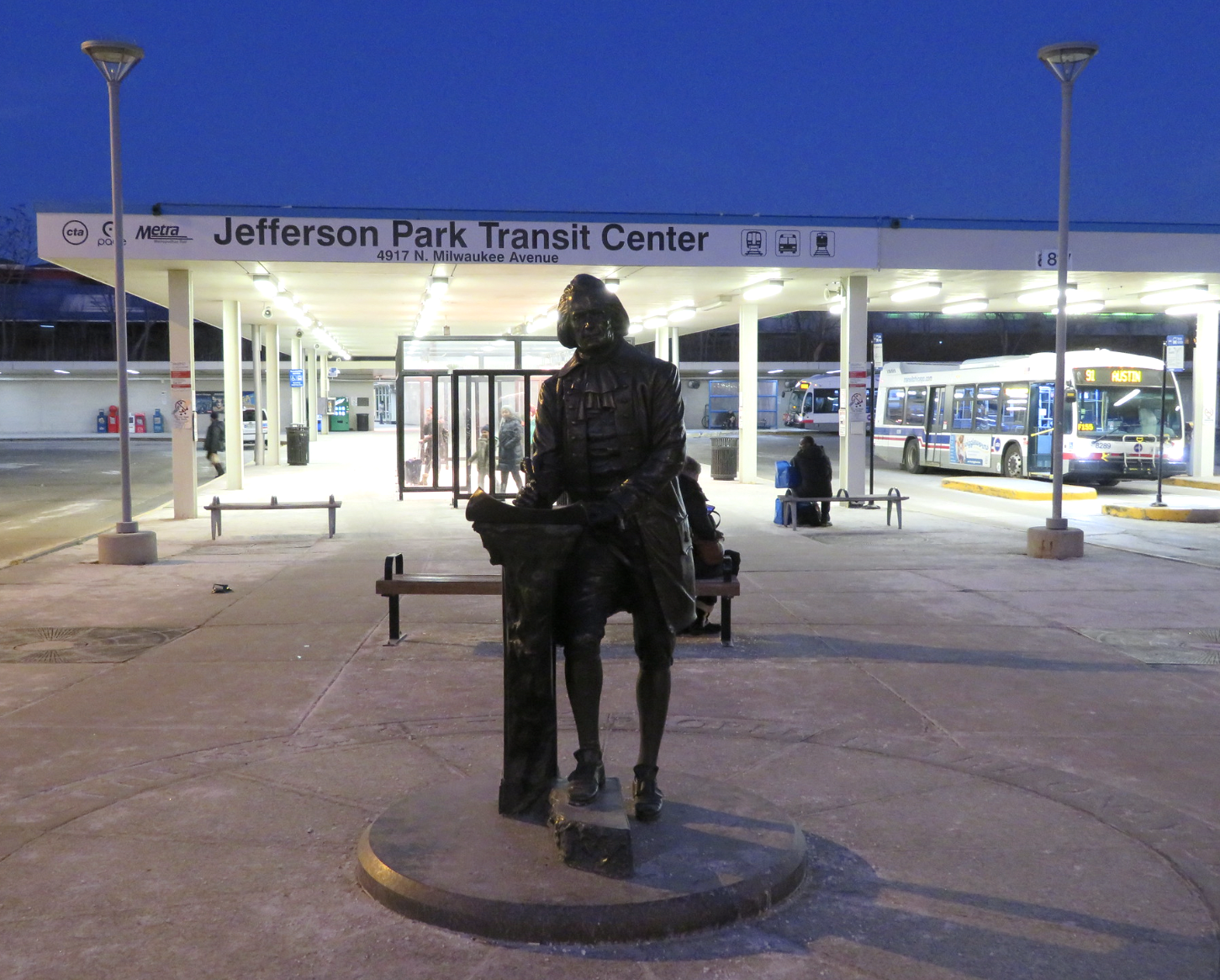Emails Show CDOT Pushed Back on Reilly’s Riverwalk Bike Ban as “Too Extreme”
6:10 PM CDT on July 11, 2019

Photo: Barry Kafka
As someone who worked at the Chicago Department of Transportation overseeing bike parking installation in the early- and mid-2000s, and has been writing about the department ever since, I can tell you that CDOT staffers are generally on the right page when it comes to walking, biking, and transit issues. Unfortunately, they often have to struggle against the more backwards viewpoints of other city officials, especially aldermen.

So it's no surprise that city emails I acquired through a Freedom of Information Act request prove that CDOT leaders were on the right side of history when downtown alderman Brendan Reilly introduced his wrongheaded Chicago Riverwalk bike ban ordinance last September.
Read this article to get up to speed on the whole sorry saga of Reilly's crusade to stop people from biking on a bikeway. But, in a nutshell, several years ago the city of Chicago pitched the recent riverwalk expansion to the U.S. Department of Transportation and the public as a bike and pedestrian commuting route that would "enhance safety… with bicycle paths and pedestrian trails along the continuous promenade” in order to secure a $99 million Transportation Innovation and Finance Act loan.
After the riverwalk proved popular with many kinds of users, resulting in crowding during peak times, in 2018 Reilly asked the city to install signs ordering cyclists to walk their bike on the esplanade, which were posted that summer. After I published a Streetsblog post pointing out that the signs were invalid because it was still legal to ride a bike there, Reilly responded by introducing the ordinance to ban cycling.
Full credit goes to Streetsblog for pointing out there was no ordinance to support the "Walk your bike" signs. As such, we introduced an ordinance to do just that. Obviously enforcement will be driven by common sense: when there tons of pedestrians present, it'll be enforced. https://t.co/OaPsE02eTO
— Brendan Reilly (@AldReilly) September 21, 2018
The ordinance was never even introduced in committee, let alone passed by the full City Council. However, Reilly reintroduced the ordinance in May, after Mayor Lori Lightfoot was inaugurated, and he recently tweeted that he plans to get the legislation passed by the end of this summer.
Among the city emails I obtained was a memo that then-deputy CDOT commissioner Luann Hamilton shared with Michelle Woods, a project manager with the Chicago Department of Fleet and Facility Management (2FM), which oversees the riverwalk, on September 27, 2018, a week after Reilly first introduced the ordinance. The memo, drafted by CDOT legislative and policy analyst David Seglin and approved by then-CDOT commissioner Rebekah Scheinfeld, outlined the transportation department's firm opposition to Reilly's 24/7/365 bike ban.

"While CDOT recognizes the safety issues raised due to bicycle riding on the riverwalk due to the heavy congestion at certain times and at certain sections, an outright ban is too extreme," the memo stated. "Instead, CDOT recommends that 2FM be empowered/tasked, in consultation with the CDOT commissioner, to promulgate rules and regulations for bicycle use that could restrict such use by season, time of day, day of week, and by geographic area along the riverwalk."
That's a totally reasonable position. In fact, Streetsblog Chicago has floated the exact same alternative in the past, assuming that simply posting signs that say "Walk Bike When Riverwalk Is Crowded" aren't deemed sufficient. For example, requiring cyclists to dismount between May and October, during the peak hours of noon to 2 p.m. and 4 to 8 p.m., within the cafe zone between State Street and Clark Street, would eliminate most conflicts without unduly inconveniencing cyclists, since they could enter and exit the promenade via ramps at State and Clark.
The CDOT memo also noted that Reilly's draconian ban would run counter to the spirit of Chicago's federal loan application, essentially making it a bait-and-switch. "The TIFIA loan application submitted by the city to secure funding for the riverwalk's engineering and construction identified bicycling as a mode that would benefit from the intermodal connections that the riverwalk would provide, including safely connecting the Lakefront Trail to the Wacker Drive business district and reducing crashes in the Loop," it stated. "A prohibition would run counter to the information we provided USDOT in the application process. However, a limitation or restriction that is intended to benefit pedestrians, boat access, and revenue generating uses would seem to adhere to the spirit of the project's purpose and need."

Another email I obtained, sent on September 26, 2018, by 2FM commissioner David Reynolds to the Mayor's Office of Legislative Counsel and Government Affairs, shows that his department wasn't particularly hot on Reilly's proposal either. "2FM remains neutral on the proposed ordinance but has concerns," Reynolds' memo stated.
The 2FM memo noted that his department and CDOT are required to report to the feds on a regular basis on the riverwalk revenue generation that is being used to pay back the $99 million loan. "As part of that reporting the past few years, the city has represented that the riverwalk 'provides safe and efficient pedestrian access between commuter rail stations and the Lake Michigan Trail system and connections to bike paths throughout the downtown area. [Emphasis in original.] An outright prohibition of [biking] on the riverwalk is inconsistent with the position previously represented to the federal government. We are concerned that an outright prohibition may be problematic as it relates to this loan." Like CDOT, he recommended that only a partial bike ban be implemented, from May through October during peak hours.
Unfortunately, the cooler heads at CDOT and 2FM did not prevail, and there's still a danger that Reilly's anti-bike ordinance will be passed this summer, eliminating the only car-free cycling connection between the Lakefront Trail and the Loop. But hopefully bringing this history to light will help kill off the alderman's ill-conceived legislation for good.
You can also let the city know where you stand on the issue by emailing chicagoriverwalk@cityofchicago.org.
You might also contact your local alderman if they’re on the Pedestrian and Traffic Safety committee, which would vote on the ordinance before a full Council vote. (Use this website to find out which ward you live in if you’re not sure.) Here’s a list of the committee members:
- Roberto Maldonado (26th)
- Ed Burke (14th)
- Brian Hopkins (2nd)
- Rossana Rodriguez Sanchez (33nd)
- Stephanie Coleman (16th)
- Marty Quinn (13th)
- Felix Cardona (31st)
- George Cardenas (12th)
- Andres Vasquez (40th)
- Anthony Beale (9th)
- Sophia King (4th)
- David Moore (17th)
- Byron Sigcho-Lopez (25th)
- Daniel LaSpata (1st)
In addition to editing Streetsblog Chicago, John writes about transportation and other topics for additional local publications. A Chicagoan since 1989, he enjoys exploring the city on foot, bike, bus, and 'L' train.
Read More:
Stay in touch
Sign up for our free newsletter
More from Streetsblog Chicago
They can drive 25: Residents, panelist support lowering Chicago’s default speed limit
While there's no ordinance yet, the next steps are to draft one, take a committee vote and, if it passes, put it before the full City Council.
One agency to rule them all: Advocates are cautiously optimistic about proposed bill to combine the 4 Chicago area transit bureaus
The Active Transportation Alliance, Commuters Take Action, and Equiticity weigh in on the proposed legislation.



